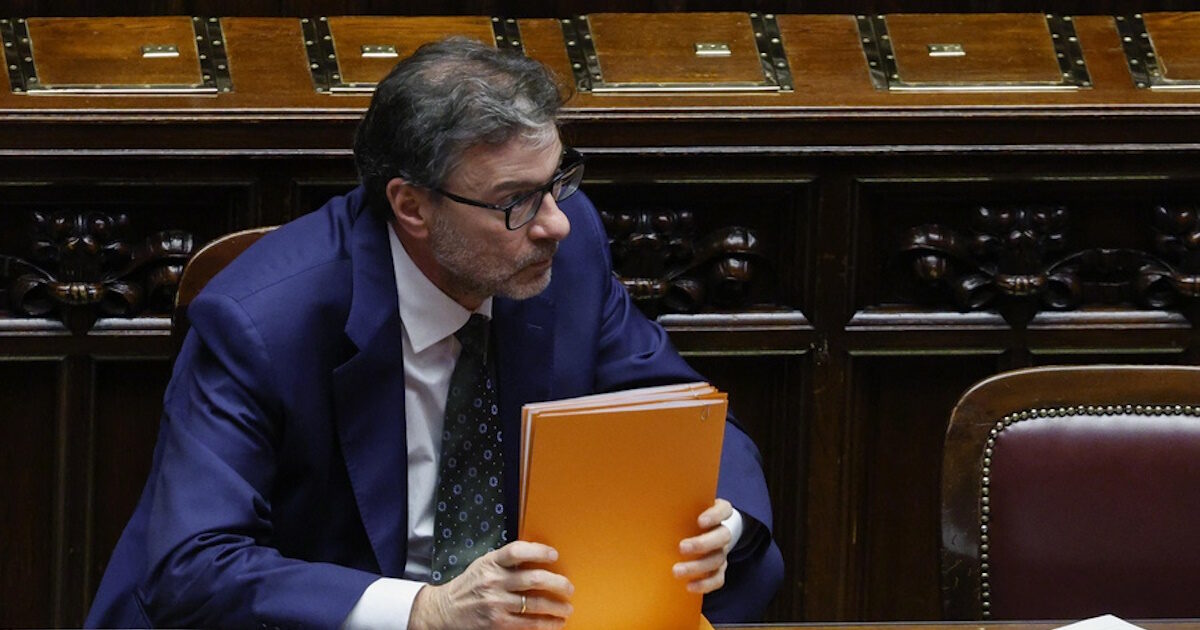Its finance minister Italy Giancarlo Giorgetti strongly criticized aggressive policy debt of Germany on defense spending.
“The Germans have decided that they can do whatever they want, because Germany has to be re -arranged and debt is no longer a problem,” the Italian finance minister said at an event organized by his party, the right populist LEGA (15th), Germany.
In the past few days, Giorgetti had already opposed the European Commission’s re -equipment plans for debt -funded, named “Rearm EU”. He said Italy could not imagine that it would cut other budget funds in order to increase defense spending. The country could also not increase its national debt.
With a public debt of about 135% of gross domestic product (GDP), Italy is the country with the second highest debt burden in the EU after Greece. Consequently, George said on the weekend: “We make enormous efforts to reduce the debt and burden of interest and cut things that are of fundamental importance to the Italian people. And now we are suddenly supposed to find 10, 20, 30 billion euros to finance weapons. “
Frustration for harsh negotiations with Christian Lindner
Giorgetti expressed his reservations about EU re -equipment plans with sharp spikes against Germany. For example, he said that the reform of EU stability rules was designed “in German”. “Then I told them that the rules cannot work like that,” Giorgetti said.
Giorgetti has been negotiating for months with then German Finance Minister Christian Lindner. But Lindner had prevented loosening the rules of stability. Now, a few months after the rules were adopted, the Germans “did just the opposite – of course without having previously negotiated it at the EU level.”
In fact, even in its reformed form, the EU stability pact still provides as a guideline a 3% GDP ceiling for the deficit and a maximum total debt of 60% of GDP.
These prices must be achieved through flexible and individual debt reduction plans for each country. Germany had pushed for these rules, while Italy wanted to exclude some strategic spending – such as defense spending – from the deficit. It is precisely this strategy now, Germany is now turning to fund its growing defense spending.
Strategy for new Community debt?
Lorenzo Castellani, a political scientist at Luiss University in Rome, believes that Giorgetti’s criticism in Germany is part of a strategy for the stronger integration of Italian interests into the terms of the re -equipment program. “Giorgetti wants to renegotiate Rearm EU in such a way that the plan meets the terms of the” Next Generation EU “program, that is, to include a common lending.”
As part of the € 750 billion “Next Generation EU” fund, EU states have for the first time agreed to take on European debt. At that time, Italy was the country that had been hit first and one of the countries most affected by the crowning crisis and received the largest absolute sum from the fund: about 200 billion euros, consisting of grants and loans.
On the contrary, Member States are now going to fund all € 800 billion for the EU re -equipment. Italy should take on additional debt for this purpose. “This is difficult to do with such a high level of national debt,” says Castellani. “It is just as difficult to convince Italian voters, most of whom are against re -equipment.”
In fact, according to a recent study, only one in three Italians support the “Rearm EU” plan. Ukraine support is also at a historically low level with only 32% of respondents.
In Brussels, therefore, Giorgetti has already presented an alternative to Rearm EU, which provides for the mobilization of private investment in equipment with the help of government guarantees at EU level. For Castelani, however, it is also clear that Italy is not just a German debt policy: George, “says Castelani.
